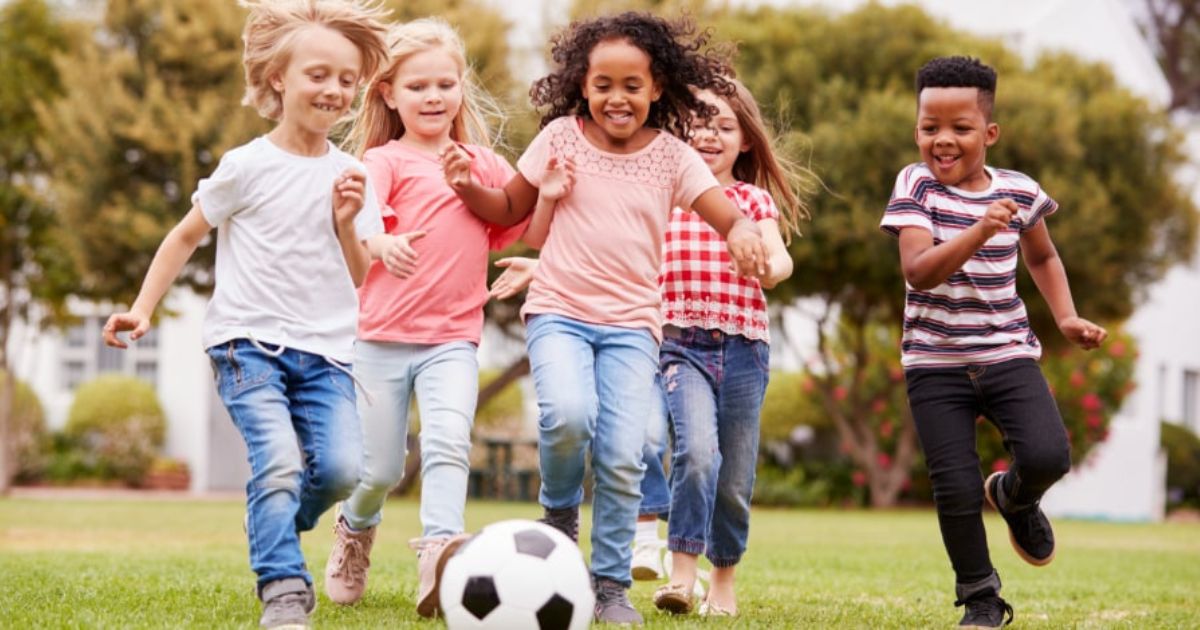A recent study led by researchers from the University of Queensland has unveiled a compelling link between early childhood sports participation and enhanced long-term mental health outcomes.
Associate Professor Asad Khan, hailing from UQ’s School of Health and Rehabilitation Sciences, spearheaded this research initiative, which delved into data encompassing over 4,200 Australian children across an extensive eight-year period, drawing from the Longitudinal Study of Australian Children.
Early Childhood Sports Participation And Better Mental Health
Mental health among children is a topic of increasing concern, with statistics from the Australian Institute of Health and Welfare revealing that approximately 14 percent of Australian children aged four to eleven grapple with mental disorders.
This study aims to shed light on how early engagement in sports may significantly impact children’s emotional well-being and social development.
One noteworthy finding of this research is the positive influence of team sports on children, particularly those who tend to internalize their emotions and encounter difficulties in socializing with their peers.
Team sports offer a unique avenue for children to foster social connections, develop essential interpersonal skills, and effectively manage their emotions.
The importance of early sports engagement cannot be overstated. The study suggests that children who embark on their sporting journey at a young age are more likely to reap the long-term benefits of improved mental health.
As children actively participate in sports, they gain not only physical fitness but also invaluable life skills that contribute to their overall well-being.
Associate Professor Asad Khan elaborates on the significance of these findings, emphasizing that sports offer a structured and supportive environment for children to develop emotional resilience and coping mechanisms.
He notes that team sports, in particular, provide an opportunity for children to learn how to navigate interpersonal relationships, work collaboratively, and manage emotions in a social context.
The research underscores the positive impact of sports as a protective factor against the development of mental health challenges in children.
Team sports, in particular, serve as a buffer for children who may be more prone to internalizing their emotions or facing difficulties in socializing. By participating in sports, children not only improve their physical health but also cultivate vital emotional and social skills.
This study aligns with the broader recognition of the multifaceted benefits of sports engagement for children. Beyond physical fitness, sports instill discipline, teamwork, and resilience, all of which contribute to a child’s holistic development.
Moreover, the camaraderie and social bonds forged through team sports offer a strong support network for children, bolstering their mental and emotional well-being.
In the context of Australia, where a significant proportion of children experience mental health challenges, the findings of this study hold particular relevance.
By encouraging early sports participation, parents, educators, and policymakers can play a pivotal role in equipping children with the tools they need to thrive emotionally and socially.
It is noteworthy that the study highlights the gendered aspect of mental health challenges among children, with boys more commonly affected than girls.
This underscores the importance of tailored interventions and support systems that cater to the unique needs of children based on their gender and individual characteristics.
In conclusion, the University of Queensland’s study sheds light on the enduring benefits of early sports participation for children’s mental health.
By actively engaging in sports, children can develop essential life skills, improve emotional resilience, and build social connections, particularly in a team setting.
These findings underscore the importance of fostering a culture of sports and physical activity among children, offering a promising avenue for enhancing their overall well-being.
As the study aptly demonstrates, sports have the power to positively shape the mental health trajectories of the younger generation, making them better equipped to navigate life’s challenges.









